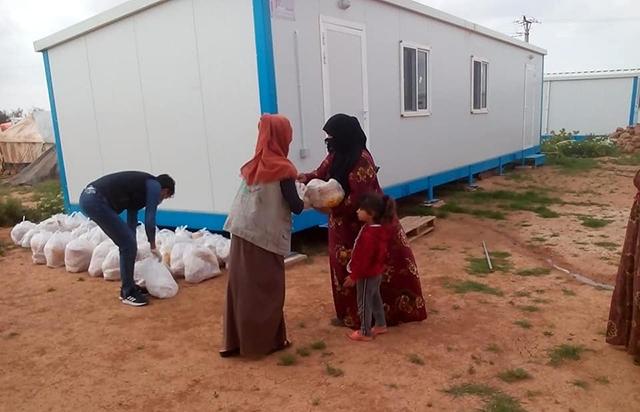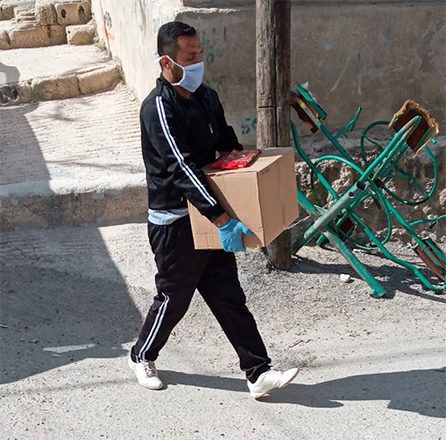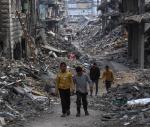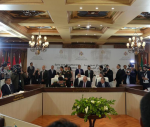You are here
‘Jordan needs continued NGO support in forming, implementing exemplary refugee policy’
By JT - Jul 01,2020 - Last updated at Jul 01,2020
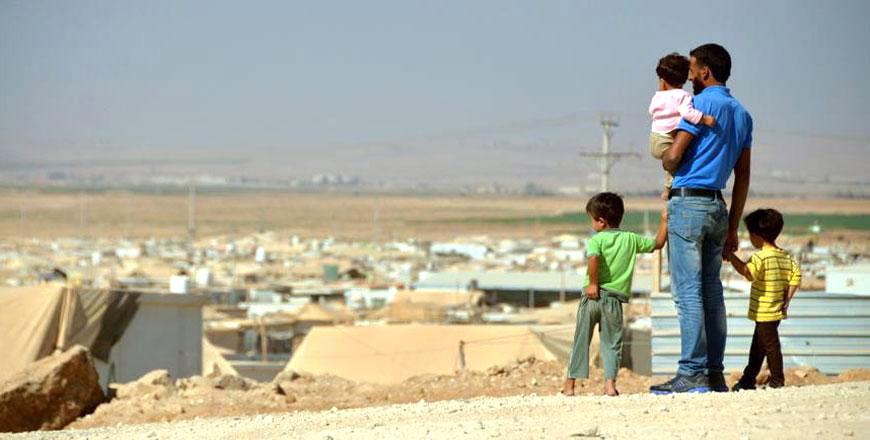
Syrian refugees are seen at the Zaatari refugee camp in Mafraq Governorate, some 80km north of Amman (JT file photo)
AMMAN — The Jordan INGO Forum (JIF) and the Jordanian NGOs Forum (JONAF) have launched the “June 2020 Walk the Talk” report on progress and challenges faced in implementing the commitments made by Jordan and the international community under the Jordan Compact and at subsequent Brussels meetings in 2017, 2018 and 2019.
As with previous years, the report focuses on education, livelihoods, protection and health, drawing heavily on both civil society consultations and the Independent Monitor’s assessment report from April 2020, according to a joint JIF-JONAF statement.
The report points to obstacles that Syrian refugees continue to face and actions that the international community and the Jordanian government can take to address these challenges.
The advent of COVID-19 made the backdrop to this year’s Brussels IV Conference “very different” from previous years. Jordan is entering a “challenging and uncertain” period. Like other countries, it faces the difficult task of balancing the health risks created by COVID-19 against the economic risks posed by public health measures to limit virus transmission, according to the statement.
While the Jordanian government “must be commended” for the way it has handled the pandemic, Jordan has not been spared the damaging socio-economic impacts of a prolonged curfew. Vulnerable populations have been affected by the loss of livelihoods and an immediate priority for JIF, JONAF and their member agencies has been to ensure that “no one is left behind” in national response plans to COVID-19.
“In particular, the empowerment of Syrian women and youth must be integrated in these strategies to address the specific economic, social and protection concerns brought about by the pandemic,” the statement read.
Also important is the need to preserve the gains that have been made over the past several years with the support of humanitarian and development assistance. This requires a significant investment in remedial action, the statement added.
Health services provided by humanitarian agencies play a “critical role” in the COVID-19 response, with refugees at increased risk of infection due to overcrowding, lack of access to services and economic vulnerability. Demand for basic needs support is greater now than before, but it must also be complemented by a longer-term commitment to support economic recovery and to guarantee that protection spaces for refugees do not narrow as economic conditions deteriorate, especially at a time when most expect the number and severity of protection cases to rise sharply, the statement noted.
Ensuring that levels of international support are adequate to meet the many challenges facing Jordan is critical. In addition, there must be continued follow-up and engagement with civil society to address these ongoing needs and incorporate necessary voices and perspectives.
“Furthermore, as the Syrian conflict continues unabated and the need for political dialogue to bring an end to the crisis is essential, we all have a role to play in safeguarding the welfare and livelihoods of Syrian refugees in Jordan, as well as in prioritising localisation and ensuring sustainable ownership at the community level,” the statement read.
“It is essential that we continue to support Jordan in setting an example for other countries in the region on both refugee policy and its implementation,” the statement concluded.
Related Articles
AMMAN — After the success of the first phase of Jordan NGOs Forum’s (JONAF) response plan, initiated at the start of the COVID-19 pandemic,
AMMAN — As part of its endeavours to lead the efforts exerted in humanitarian response and development in Jordan, the Jordanian NGOs Forum (
AMMAN — The Arab Renaissance for Democracy and Development (ARDD) has been providing support to over 16,000 vulnerable families from refugee


